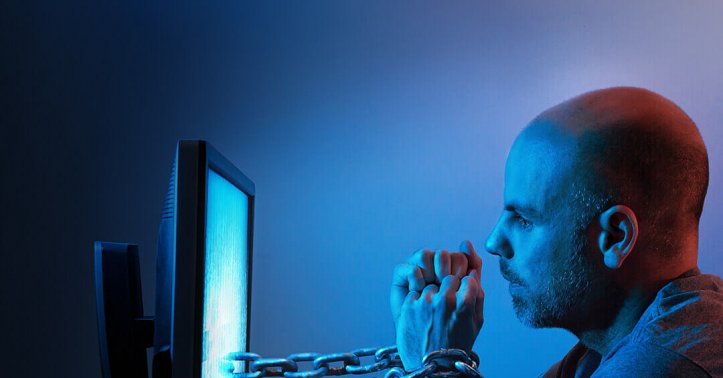
The various types of addictions you can get medical treatment for
The various types of addictions you can get medical treatment for
Addiction is a severe mental health disorder that affects millions of people around the world. Without proper treatment, it can have devastating consequences on physical, psychological, and social well-being. Fortunately, many different types of addictions can be treated with medical intervention and therapy. This article will explore some of the different types of addictions that can be treated with medical intervention and therapy.
Alcohol addiction
Alcohol addiction is one of the most common addictions worldwide, affecting millions globally. It is characterised by an intense craving for alcoholic beverages and an inability to quit drinking despite negative consequences such as job loss, family, or relationships. Medical treatment for alcohol addiction usually entails detoxification followed by counselling and behavioural therapies like cognitive-behavioural therapy (CBT) and motivation enhancement therapy (MET). Medications such as naltrexone are also used to reduce cravings and relapse rates among individuals suffering from alcohol addiction.
Drug addiction
Drug addiction is another type of addiction that affects millions of people worldwide. It is characterised by an inability to stop using drugs despite negative consequences such as job loss, family, or relationships. Treatment for drug addiction typically involves detoxification followed by counselling and behavioural therapies like CBT and MET. Medications such as buprenorphine and naltrexone can also reduce cravings and relapse rates among individuals suffering from drug addiction.
Gambling addiction
Gambling addiction is a behaviour disorder in which an individual compulsively gambles despite the risk of financial ruin or other negative consequences. Treatment for gambling addiction usually entails cognitive-behavioural therapy (CBT) to address underlying issues that may contribute to gambling behaviour and medications such as naltrexone to reduce cravings and relapse rates.
Eating disorders
Eating disorders are a type of mental health disorder in which an individual has an abnormal relationship with food that affects their physical, psychological, and social well-being. Treatment for eating disorders typically includes medical interventions such as nutritional counseling, psychotherapy, medication management, and support groups.
Sex addiction
Sex addiction is a behavior disorder in which an individual compulsively engages in sexual activities despite the risk of personal or professional harm. Treatment for sex addiction typically involves cognitive-behavioral therapy (CBT) to address underlying issues that may contribute to sex addiction and medications such as naltrexone to reduce cravings and relapse rates.
Shopping addiction
Shopping addiction is a behaviour disorder in which an individual compulsively spends money despite the risk of financial ruin or other negative consequences. Treatment for shopping addiction typically involves cognitive-behavioural therapy (CBT) to address underlying issues that may contribute to compulsive spending and medications such as naltrexone to reduce cravings and relapse rates.
Self-harm addiction
Self-harm addiction is a behaviour disorder in which an individual compulsively engages in self-harming behaviours, such as cutting or burning, despite the risk of physical damage or other negative consequences. Treatment for self-harm addiction typically entails cognitive-behavioural therapy (CBT) to address underlying issues that may contribute to the behaviour and medications such as naltrexone to reduce cravings and relapse rates.
Internet addiction
Internet addiction is a behaviour disorder in which an individual compulsively engages in activities such as gaming, streaming, and surfing the web despite the risk of personal or professional harm. Treatment for internet addiction typically involves cognitive-behavioural therapy (CBT) to address underlying issues that may contribute to excessive online use and medications such as naltrexone to reduce cravings and relapse rates.
Exercise addiction
Exercise addiction is a behaviour disorder in which an individual compulsively engages in physical activity despite the risk of physical harm or other negative consequences. Treatment for exercise addiction typically involves cognitive-behavioural therapy (CBT) to address underlying issues that may contribute to excessive exercise and medications such as naltrexone to reduce cravings and relapse rates.
Caffeine addiction
Caffeine addiction is a behaviour disorder in which an individual compulsively consumes caffeine despite the risk of physical or psychological harm. Treatment for caffeine addiction typically involves cognitive-behavioural therapy (CBT) to address underlying issues that may contribute to excessive caffeine consumption and medications such as naltrexone to reduce cravings and relapse rates.
Porn addiction
Porn addiction is a behaviour disorder in which an individual compulsively watches pornography despite the risk of social or personal harm. Treatment for porn addiction typically involves cognitive-behavioural therapy (CBT) to address underlying issues that may contribute to excessive porn use and medications such as naltrexone to reduce cravings and relapse rates.
Video game addiction
Video game addiction is a behaviour disorder in which an individual compulsively plays video games despite the risk of personal or professional harm. Treatment for video game addiction typically involves cognitive-behavioural therapy (CBT) to address underlying issues that may contribute to excessive gaming and medications such as naltrexone to reduce cravings and relapse rates.
The bottom line
Addiction is a complex issue with many facets, but the fact remains that there are numerous types of addictions out there that require treatment. Whether it’s drug addiction, gambling addiction, shopping addiction, self-harm addiction, internet addiction, exercise addiction or any other type of substance or behaviour disorder: seeking support is essential for positive recovery outcomes.








